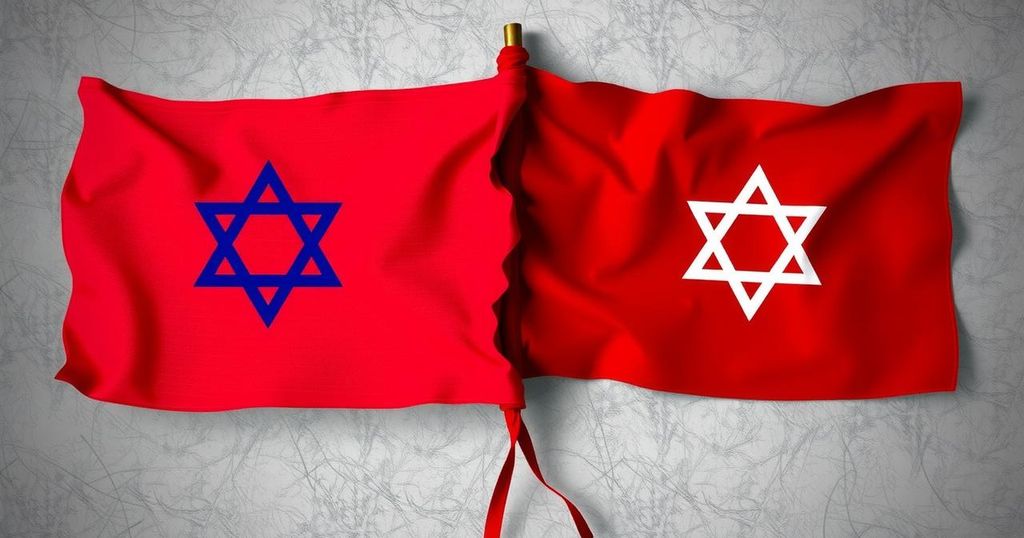Tensions rise between Turkey and Israel due to developments in Syria, with potential for military confrontation. Erdogan’s support for Palestinians and internal pressures complicate relations. Historical grievances, ideological differences, and regional dynamics contribute to deteriorating ties, underscoring risks of conflict between the two nations.
Recent developments in Syria have escalated tensions between Turkey and Israel, potentially leading to a direct military confrontation. Demonstrations in Istanbul have manifested growing Turkish anti-Israeli sentiment, sparked by the ongoing war between Israel and Hamas. Turkish President Recep Tayyip Erdogan’s support for Palestine has intensified, particularly after the conflict’s intensification on October 7, 2023, which reshaped the geopolitical dynamics in the region.
Dr. Hay Eytan Cohen Yanarocak, an expert at the Moshe Dayan Center, indicated that Turkey’s reaction to Israel’s concerted military efforts against Hamas has further strained ties. The fallout from the Syrian conflict, notably the weakening of the Assad regime, has allowed Turkey to gain influence and could provoke a military standoff between the two nations.
While Israel has historically maintained a relatively calm border with Turkey, this situation has changed as Turkey’s actions in Syria bring it closer to Israel’s borders. Prof. Efrat Aviv from Bar-Ilan University emphasized the unprecedented possibility of military conflict, as both nations pursue differing interests and assertive military postures in Syria.
The historical context of Israeli-Turkish relations reveals over a decade of escalating tensions, resulting in a severe diplomatic rift since the 2010 Gaza flotilla incident. Despite some thawing of ties in 2017, renewed animosity arose with Erdogan’s criticisms of Israel’s policies towards Palestinians. Presently, Erdogan’s increasing internal pressure to adopt a more aggressive stance towards Israel complicates prospects for reconciliation.
The ongoing conflict has disrupted tourism and trade, historically significant pillars of their relationship. Furthermore, Turkey’s commitment to supporting Palestinian humanitarian efforts and asserting its interests in Syrian territory poses a direct challenge to Israel. As both nations deploy troops in Syria, the stakes are higher than ever.
Both experts agree that a military confrontation could become a reality if neither side curtails its aggressive postures. Israel’s resolve to prevent Iranian influence alongside its borders adds urgency to the situation; thus, the likelihood of worsening relations remains.
Erdogan and Netanyahu’s inability to reconcile positions fosters prospects for continued hostilities. While Turkey may need to maintain diplomatic ties to influence Palestinian relations, the risk of direct confrontation persists, driven by both countries’ defensive actions in a volatile region.
The relationship between Turkey and Israel has been complex and often fraught with tension, particularly in the context of regional conflicts such as the ongoing violence in Syria and Gaza. With Turkey claiming to support the Palestinian cause through solidarity measures and humanitarian aid, its influence in Syria has evolved significantly, particularly following the Assad regime’s decline. Relations faced substantial obstacles post-2010, following clashes over Gaza, and have fluctuated with Erdogan’s increasing criticism of Israel’s policies. As both countries seek to assert their influence in a rapidly changing Middle Eastern landscape, past grievances and ideological differences complicate any potential reconciliation. The internal political pressures facing Erdogan also contribute to the prevailing anti-Israeli sentiment within Turkey, thereby impacting diplomatic relations significantly.
In summary, the evolving dynamics in Syria have escalated tensions between Turkey and Israel, potentially leading to military confrontation. Historical grievances, Erdogan’s internal pressures, and both countries’ assertive military postures contribute to deteriorating relations. The complex interplay of influence, ideology, and regional politics suggests that without significant diplomatic efforts, the risk of conflict remains high, leaving the situation precarious for both nations in a volatile landscape.
Original Source: www.jpost.com






